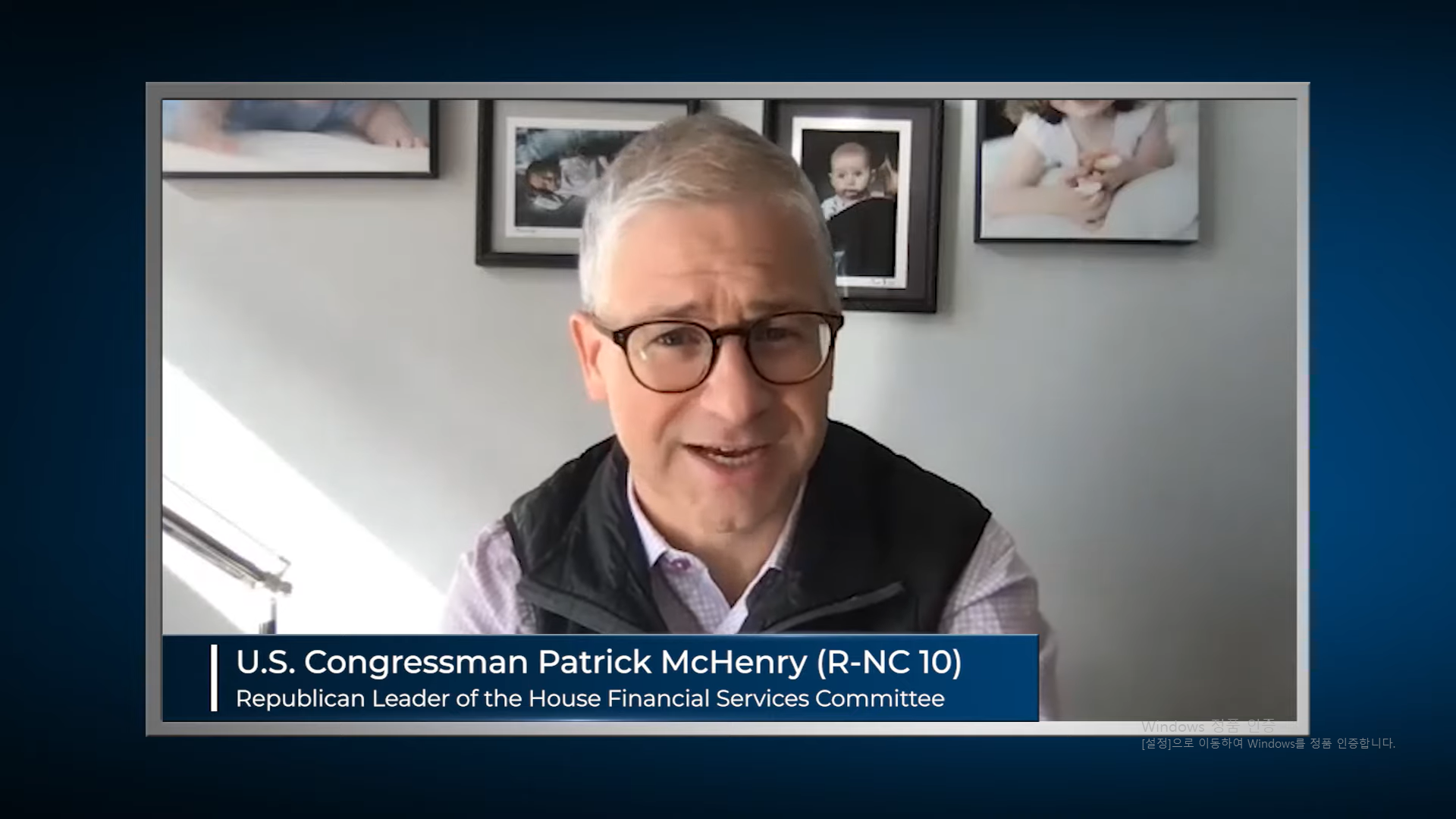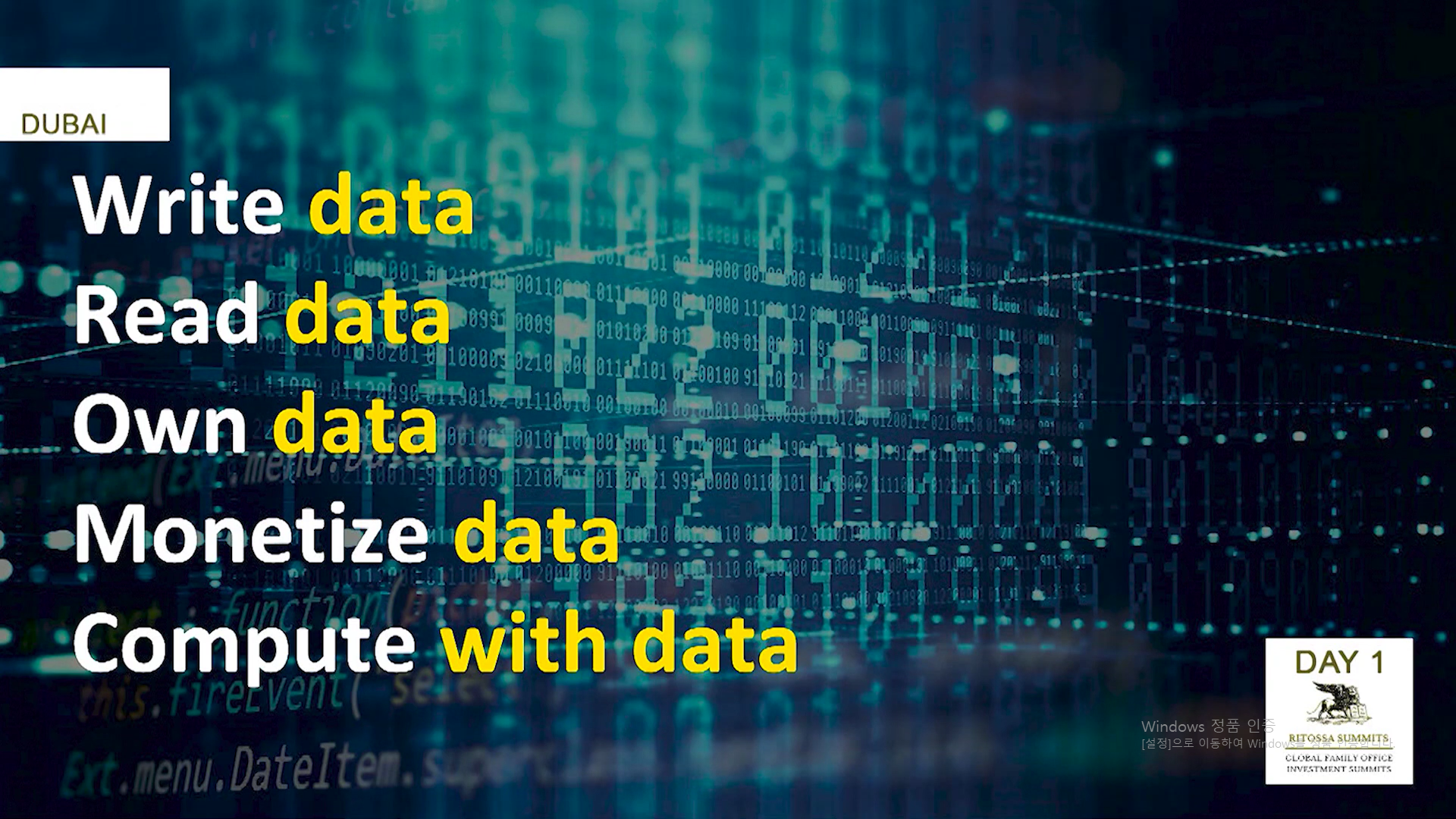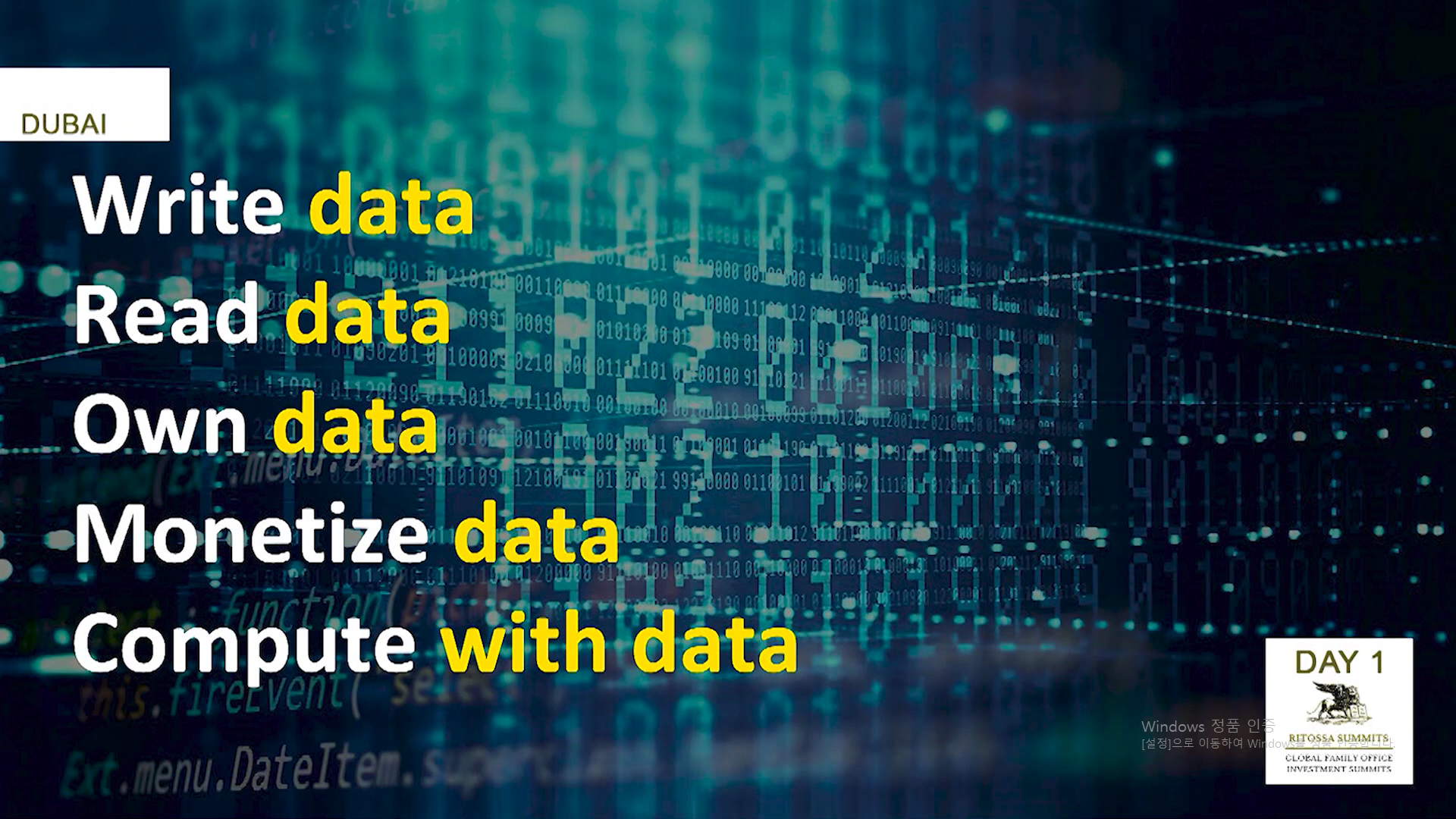Blockchain technology has been gaining ground in the past couple of years as businesses and investors from all over the globe realize its many benefits and endless potential for use. However, the United States, considered to be a technological leader, is dilly dallying in its acceptance and adoption. Financial fairness and digital currencies are currently hot topics in Washington D.C. as many lawmakers call for stringent regulations.
U.S. Congressman Patrick McHenry (R-NC 10), Republican Leader of the House Financial Services Committee, is a very vocal supporter of blockchain technology. The North Carolina representative fully believes that the use of blockchain technology can propel the country into the future global digital economy and result in greater financial inclusion. Bitcoin Association founding president Jimmy Nguyen spoke to the Republican leader in the first episode of online video series Blockchain Policy Matters.

“I see huge benefits for entrepreneurs and everyday people via technology transformation. Democratizing capital and driving innovation are my two primary focuses, and I think they’re quite linked. That’s what I’m focused on, and I think that as a result of that, we will have greater financial inclusion,” McHenry said.
“At the state level, we’ve seen various different types of adoption of distributed ledger technology and an acceptance of cryptocurrencies and Bitcoin. I think that will eventually percolate up into policymakers better understanding it in Washington,’ McHenry further said.
The Republican leader is pushing for laws that will enable developers to further innovate blockchain technology rather than hamper its growth. McHenry knows that it will take a long time, and a crucial first step is for policymakers to have a basic education about Bitcoin and blockchain technology in order for them to fully appreciate their value to the national economy.
“Education has to be the primary driver here. Most policymakers are not informed about the basics of cryptocurrency, the basics of blockchain technology—just the basics. So, we need that base level of education to rise and then we can build off that platform…. Right now, that baseline of education for policymakers is very important, because what we don’t need out of Washington or the states is to restrict or crush or try to kill this type of technological advancement,” McHenry explained.
The capability of the Bitcoin SV blockchain to process low-cost and instant microtransactions, accommodate massive amounts of data and have a stable protocol that allows for innumerable use cases can provide the government, small and big businesses, and even regular citizens to earn revenues. This is what financial inclusion is all about.
"The first layer here is to actually monetize the Internet and to make the Internet truly the Internet of money. Bitcoin is that layer that will enable us to take the exchange of data and actually have an exchange of data for some value. I think it’s a huge opportunity to connect data and tradeable value,” McHenry stated.
It is imperative for American lawmakers to learn how to take advantage of the opportunity blockchain technology has provided in helping the nation’s economy get back up after suffering greatly from the pandemic.


This article does not necessarily reflect the opinions of the editors or management of EconoTimes



 Baidu Approves $5 Billion Share Buyback and Plans First-Ever Dividend in 2026
Baidu Approves $5 Billion Share Buyback and Plans First-Ever Dividend in 2026  SpaceX Prioritizes Moon Mission Before Mars as Starship Development Accelerates
SpaceX Prioritizes Moon Mission Before Mars as Starship Development Accelerates  Alphabet’s Massive AI Spending Surge Signals Confidence in Google’s Growth Engine
Alphabet’s Massive AI Spending Surge Signals Confidence in Google’s Growth Engine  CK Hutchison Launches Arbitration After Panama Court Revokes Canal Port Licences
CK Hutchison Launches Arbitration After Panama Court Revokes Canal Port Licences  Tencent Shares Slide After WeChat Restricts YuanBao AI Promotional Links
Tencent Shares Slide After WeChat Restricts YuanBao AI Promotional Links  SpaceX Pushes for Early Stock Index Inclusion Ahead of Potential Record-Breaking IPO
SpaceX Pushes for Early Stock Index Inclusion Ahead of Potential Record-Breaking IPO  Instagram Outage Disrupts Thousands of U.S. Users
Instagram Outage Disrupts Thousands of U.S. Users  Global PC Makers Eye Chinese Memory Chip Suppliers Amid Ongoing Supply Crunch
Global PC Makers Eye Chinese Memory Chip Suppliers Amid Ongoing Supply Crunch  Nvidia Nears $20 Billion OpenAI Investment as AI Funding Race Intensifies
Nvidia Nears $20 Billion OpenAI Investment as AI Funding Race Intensifies  Ford and Geely Explore Strategic Manufacturing Partnership in Europe
Ford and Geely Explore Strategic Manufacturing Partnership in Europe  Missouri Judge Dismisses Lawsuit Challenging Starbucks’ Diversity and Inclusion Policies
Missouri Judge Dismisses Lawsuit Challenging Starbucks’ Diversity and Inclusion Policies  OpenAI Expands Enterprise AI Strategy With Major Hiring Push Ahead of New Business Offering
OpenAI Expands Enterprise AI Strategy With Major Hiring Push Ahead of New Business Offering  FDA Targets Hims & Hers Over $49 Weight-Loss Pill, Raising Legal and Safety Concerns
FDA Targets Hims & Hers Over $49 Weight-Loss Pill, Raising Legal and Safety Concerns  Prudential Financial Reports Higher Q4 Profit on Strong Underwriting and Investment Gains
Prudential Financial Reports Higher Q4 Profit on Strong Underwriting and Investment Gains  Nvidia, ByteDance, and the U.S.-China AI Chip Standoff Over H200 Exports
Nvidia, ByteDance, and the U.S.-China AI Chip Standoff Over H200 Exports  Nintendo Shares Slide After Earnings Miss Raises Switch 2 Margin Concerns
Nintendo Shares Slide After Earnings Miss Raises Switch 2 Margin Concerns  TrumpRx Website Launches to Offer Discounted Prescription Drugs for Cash-Paying Americans
TrumpRx Website Launches to Offer Discounted Prescription Drugs for Cash-Paying Americans 




























